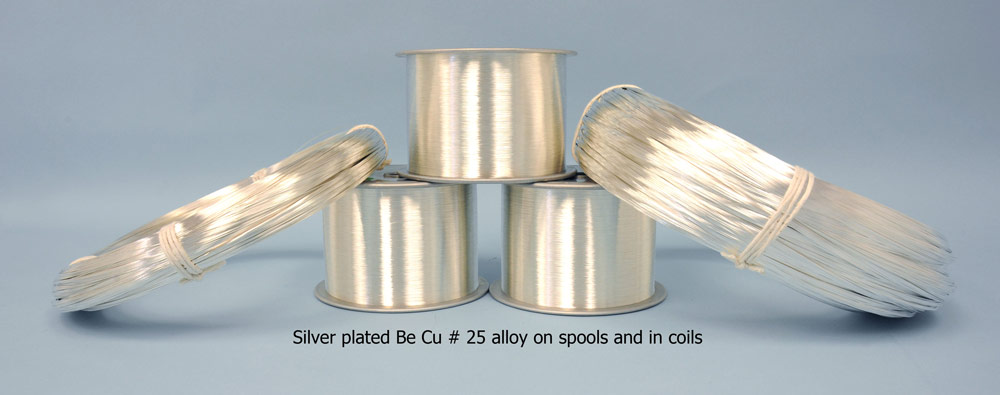Conductivity is an important requirement for most industries today. These industries use plated wire with a conductive metal coating to provide adequate conductivity. There are several metal coating options for plating wire. Choosing the right metal with the proper level of conductivity can make or break the success of your product.

The following metals are the most conductive:
- Gold – While it’s higher in cost than other metals, gold has many benefits. Its many advantages are corrosion resistance, stable contact resistance, high conductivity, and wear resistance. Applications that utilize a gold metal coating are connectors, etched circuits, semi-conductors, and printed circuits.
- Platinum – This precious metal protects other metals against corrosion, so it’s often used as a protective coating. It is ideal for high thermal conductivity applications because of its high melting point.
- Silver – Silver conducts heat and electricity efficiently. This metal can provide low contact wear resistance and ideal optical reflectivity. One downside to silver is that it can tarnish easily. Silver is an ideal choice when looking to coat conductors in mirrors, contacts, and telecom applications.
- Copper – This metal is highly conductive because of its single valence electron. It also offers outstanding corrosion resistance. Semi-conductors and printed circuit boards are common applications that use copper coatings.
- Zinc – While zinc offers less conductivity than other metals, it is less expensive. It is a durable option for metal coatings. If you want a cost-effective metal with good conductivity, choose zinc.
- Nickel – Nickel is often applied to surfaces to add thickness, increase corrosion, and resistance to wear.
Related Reading about Plated Wire
- The Methodology of Plating Copper Alloys with NickelNickel plated wire is a popular choice for many industries due to its many benefits.
- Benefits of Shaped Wires
- Electroplating Wire

 Technical Data
Technical Data


